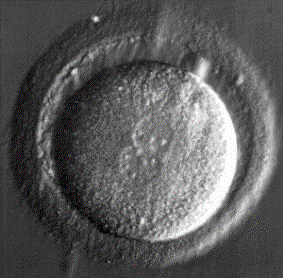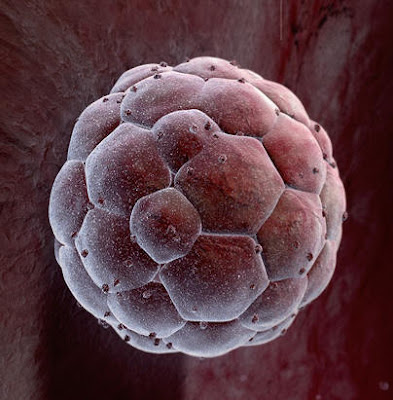 This argument wouldn’t have to be made, but for science becoming post modern in some circles so that narrative counts more than facts. This has certainly been true with regard to biotechnology because some want to use human embryos instrumentally. But rather than just admit that and justify it ethically, definitions were changed, for example, claiming that an embryo only comes into being upon implantation, rather than at its beginning at the completion of fertilization. In that way—presto-chango—embryos in petri dishes could be used as so many kernels of corn.
This argument wouldn’t have to be made, but for science becoming post modern in some circles so that narrative counts more than facts. This has certainly been true with regard to biotechnology because some want to use human embryos instrumentally. But rather than just admit that and justify it ethically, definitions were changed, for example, claiming that an embryo only comes into being upon implantation, rather than at its beginning at the completion of fertilization. In that way—presto-chango—embryos in petri dishes could be used as so many kernels of corn.
But I looked into this issue when I was researching Consumer’s Guide to a Brave New World. Every embryology text book I reviewed retained the non political definition of when human life begins, e.g. at the completion of fertilization. One is The Developing Human: Clinically Oriented Embryology (6th Ed.) (Keith Moore and T. V. N. Persaud, W. B. Sanders Company, Philadelphia, PA, 1998), which asserts:
Human development is a continuous process that begins when an oocyte is fertilized by a sperm. (page 2)More to the point, the authors write:
Human development begins at fertilization [with the joining of egg and sperm, which] form a single cell called a zygote. This highly specialized...cell marks the beginning of each of us as a unique individual.(page 18)The authors of another embryology textbook (Ronan O’Ramilly and Fabiola Muller, Human Embryology and Teratology, (Third Ed.), (Willey-Liss, New York, NY, 2001), also state on page 8 that upon the completion of fertilization:
a new, genetically distinct human organism is formed.
 Since some don’t want to call embryos what they are, as I pointed out in an earlier post, some politicized scientists use the word “pre embryo,” as if it were something different in kind than an embryo after it implants. But scientifically, biologically, there is no such thing as a pre-embryo. Thus, the authors of Human Embryology and Teratology, in the name of scientific accuracy, place the term “pre-embryo” under the categorization, “Undesirable Term in Human Embryology,” further asserting that “embryo” is the accurate and hence, “preferable term.” They write further on page 88:
Since some don’t want to call embryos what they are, as I pointed out in an earlier post, some politicized scientists use the word “pre embryo,” as if it were something different in kind than an embryo after it implants. But scientifically, biologically, there is no such thing as a pre-embryo. Thus, the authors of Human Embryology and Teratology, in the name of scientific accuracy, place the term “pre-embryo” under the categorization, “Undesirable Term in Human Embryology,” further asserting that “embryo” is the accurate and hence, “preferable term.” They write further on page 88: The term “pre-embryo” is not used here [in their book] for the following reasons: (1) it is ill-defined; (2) it is inaccurate...(3) it is unjustified because the accepted meaning of the world embryo includes all of the first 8 weeks; (4) it is equivocal because it may convey the erroneous idea that a new human organism is formed at only some considerable time after fertilization; and (5) it was introduced in 1986 “largely for public policy reasons.”But of course, such objective scientific analysis doesn’t serve the polemic needs of some ESCR and cloning advocates.
You have a decision to make: double or nothing.
For this week only, a generous supporter has offered to fully match all new and increased donations to First Things up to $60,000.
In other words, your gift of $50 unlocks $100 for First Things, your gift of $100 unlocks $200, and so on, up to a total of $120,000. But if you don’t give, nothing.
So what will it be, dear reader: double, or nothing?
Make your year-end gift go twice as far for First Things by giving now.


